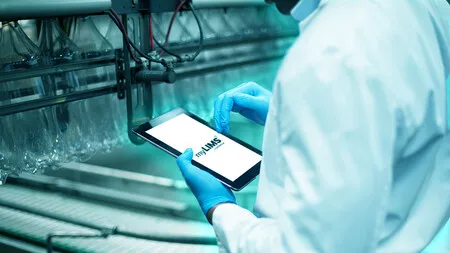September 8, 2025
8 Problems a Laboratory Management System Can Solve
Table of Content

Laboratories play a key role in various industries, such as food and beverage, manufacturing, chemical, mining, water/wastewater and environmental. However, efficiently managing a laboratory can prove challenging due to the complex nature of the activities involved.
Fortunately, technological advances have allowed the development of laboratory information management systems (LIMS), which offer a comprehensive solution to the various problems laboratories face.
In this article, we'll discuss eight common problems encountered in labs and how a lab management system can solve them.
1. Traceability of Samples and Data
Identifying and tracking samples is crucial in a laboratory. A lab management system allows the origin, location and complete history of each sample to be recorded and traced, minimizing the risk of loss or contamination. In addition, the system makes it easier to organize and access data, simplifying analysis and reporting.
Learn More: How to Structure Laboratory Data for Decision Making
2. Scheduling and Resource Allocation
Managing resources such as equipment, workspace, and personnel is essential to maximizing a lab's productivity. A lab management system allows for automatic task scheduling and optimized resource allocation, avoiding scheduling conflicts and optimizing the use of available assets.
3. Quality Control and Regulatory Compliance
Laboratories are subject to strict regulations and quality control guidelines. A lab management system can help with compliance by providing tools to track and document procedures, calibrations, maintenance, and audits. This ensures that the laboratory meets the established standards, reducing the risk of errors and non-compliance.
Learn More: Compliance Made Simple: Harness the Full Potential of LIMS Automation in Your Lab
4. Managing Laboratory Inventory
Maintaining an accurate and up-to-date inventory of reagents, materials, and consumables is essential to the efficient operation of a laboratory. A lab management system allows complete control of inventory, from the registration of inputs and outputs to the tracking of minimum stock and automatic replenishment requests. This prevents supply shortages and helps reduce waste and unnecessary costs.
5. Collaboration and Data Sharing
Laboratories often involve multidisciplinary teams and the need to share data and information efficiently. A lab management system can provide a collaborative environment where team members can access, share, and collaborate in real-time. This improves communication, reduces miscommunication, and increases the efficiency of laboratory operations.
Learn More: "Must Have" LIMS Features to Maximize Efficiency in Your Lab
6. Financial Tracking and Invoicing
A common challenge in laboratories is financial control, including accurately recording costs, invoicing, and tracking payments. LIMS software can automate these processes, generating financial reports, issuing invoices, and facilitating accounting. This contributes to more efficient and transparent financial management.
7. Projects and Deadlines
Labs are often involved in complex projects that require tracking multiple tasks and deadlines. A lab management system can help create and monitor schedules, assign tasks, and track progress. This helps ensure that projects are completed on time and that all steps are recorded correctly.
8. Data Analysis and Reporting
Laboratories generate large volumes of data and extracting valuable insights from this information is essential for informed decision-making. A lab management system can offer advanced data analysis capabilities, allowing for automated visualization, interpretation, and reporting. This facilitates the identification of patterns, trends, and significant results, contributing to the advancement of research and operational efficiency.
Learn more: LIMS Quality Indicators: Ensure Precision in Your Lab
Conclusion
Implementing a LIMS can solve several problems faced in this complex environment. From sample tracking to data analysis and reporting, these systems offer end-to-end solutions that improve operational efficiency, ensure regulatory compliance, and facilitate cross-team collaboration.
By adopting a laboratory management system, organizations can optimize their processes, reduce errors, and make more informed decisions, driving success and scientific advancement.
How about a short demo of myLIMS?
We're curious to know more about the challenges you are facing and would love the opportunity to discuss how we can help you! Contact our experts and schedule a demo.
Best-in-class LIMS
Built for your success
See what makes Confience different. Speak with a member of our team.
Schedule a Demo




.webp)


